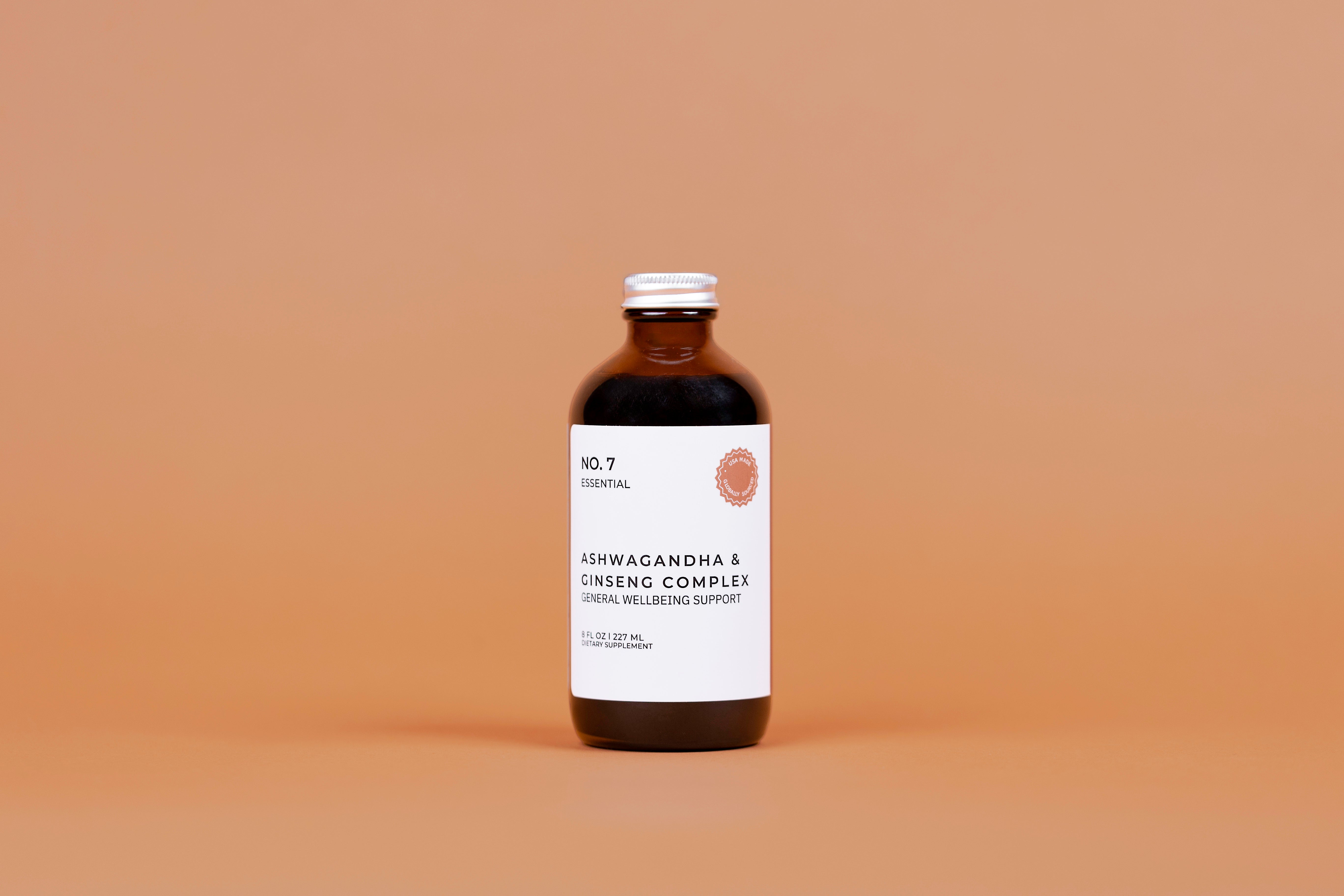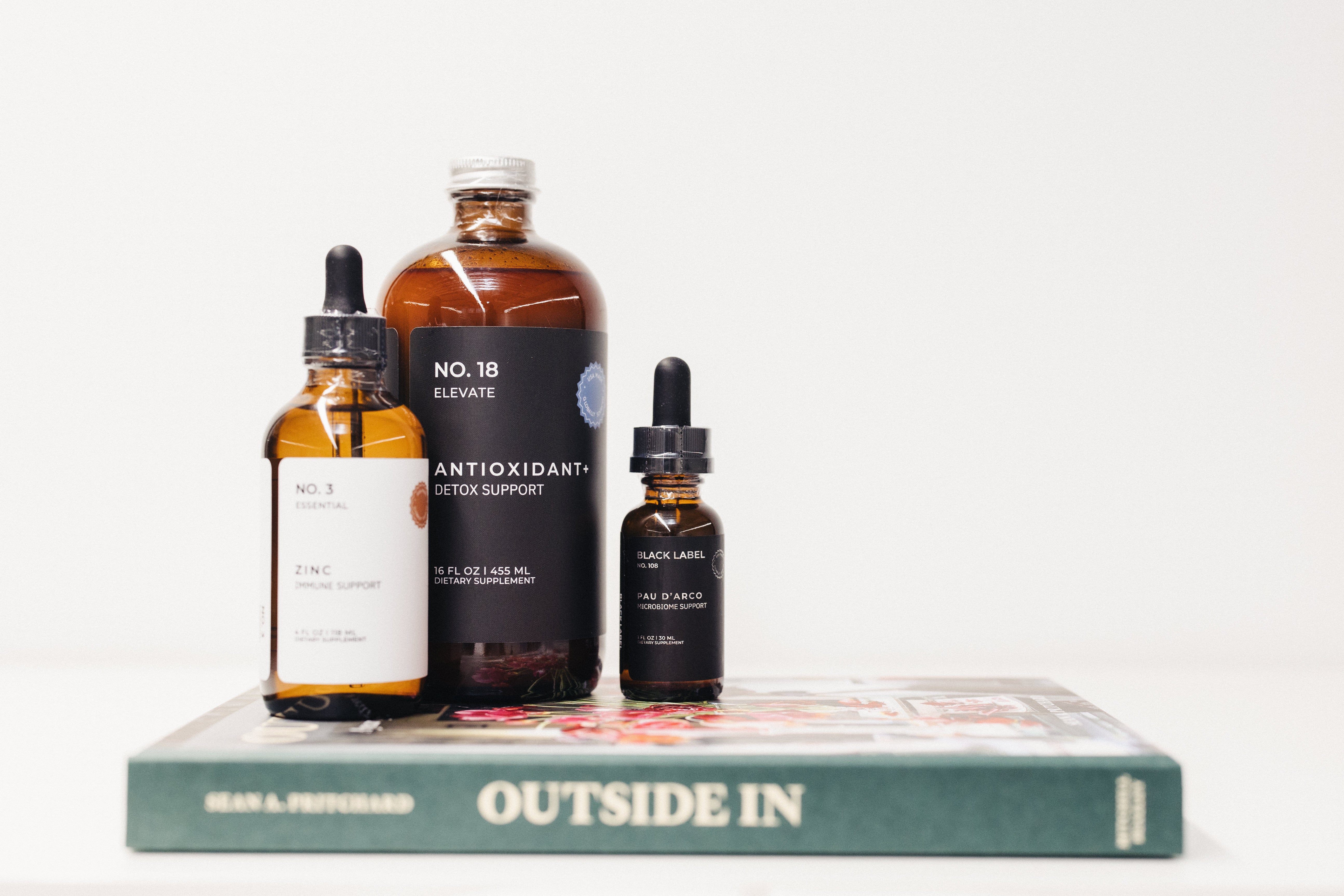
Ashwagandha: Powerful Adaptogen or Fading Trend?
Have we been lied to for the last 8,000 years or is Ashwagandha really as good as it’s been touted to be?
Yes, that’s how long Ashwagandha has been used in Ayurvedic medicine around the world. Ahwagandha (Withania somnifera) is an adaptogen, meaning it helps the body adapt to stress. But it’s also a whole-body balancer that can support energy, recovery, mood, hormones, and sleep. In fact, Ashwagandha is one of the oldest documented adaptogens in human medicine…and it’s becoming one of the most widely researched in modern science.
Stress Less, Live More
One of the most well-known benefits of Ashwagandha is its ability to lower cortisol (the most well known of “stress” chemicals). Cortisol isn’t inherently bad, but chronic elevation can lead to fatigue, weight gain, poor sleep, and anxiety.
Ashwagandha gently regulates the body’s stress response by calming the HPA axis which is the system that controls how you react to physiological stress. It’s no surprise that in clinical studies, people taking Ashwagandha extract daily had significantly lower cortisol levels and reported feeling less anxious and more grounded overall.
This isn’t hype - it’s real science, and it can make a major difference in your day-to-day mental bandwidth.
Ashwagandha isn’t just for stress - it’s a favorite amongst those trying to get to their peak in physical, mental, and overall bodily performance.
Physical Performance and Recovery
It’s been shown to improve muscle strength, recovery, and endurance. Studies have shown that participants taking Ashwagandha while strength training gained significantly more muscle and reduced body fat compared to the placebo group. It also helps lower exercise-induced inflammation (all inflammation, really), making it ideal for anyone trying to push their limits or recover faster after a workout.
Hey gentlemen…It may support healthy testosterone levels in men, which is great for vitality, drive, and body composition. Still more research to be done on this but the early data is good!
Focus and Mental Clarity
Looking for that extra push of mental processing capacity? Ashwagandha might be what you need.
It has neuroprotective properties that support focus, memory, and cognitive performance, especially when you’re pushing your mental limits. It works by reducing oxidative stress which is especially important throughout the brain and supports neurotransmitter function.
Supports Hormones
Ashwagandha has a balancing effect on your endocrine system – the system responsible for the management of hormones.
For people dealing with hormonal imbalances (more specifically, low hormone production). Ashwagandha can be a valuable resource for real change. Let’s take hypothyroidism, for example - studies indicate that it can gently increase T3 and T4 levels, helping with energy, metabolism, and mood.
It’s also being used to support hormonal balance in conditions like PCOS and perimenopause, where stress and hormone swings often go hand in hand.
Sleep, Sleep, Sleep….
If you struggle with “wired but tired” nights, where your body is exhausted but your brain is doing cartwheels, Ashwagandha can help. And it does for me!
It’s not a sedative, so you’re not worrying about being “knocked out”. It promotes deeper, more restorative sleep by increasing GABA activity - a calming neurotransmitter that helps shut down that mental overdrive loop.
This is also a great alternative for those who have used or tried Melatonin without success.
Side Note: If melatonin doesn’t “work” for you, maybe your problem isn’t a lack of melatonin (it’s just the messenger) – you might be suffering from low GABA production, Magnesium deficiency, or an imbalance within your HPA axis.
Immune Support, Too? Yep.
Ashwagandha is packed with antioxidants and anti-inflammatory properties. These help reduce oxidative stress, calm systemic inflammation, and support immune regulation. This is all especially useful when your body’s fighting off illness, healing, or just run down.
Powerful, not Overpowering
Ashwagandha is one of those rare supplements that meets you where you’re at. If you’re wired, it helps calm your system. If you’re drained, it helps restore energy. If your hormones are off, it helps rebalance.
We believe in supplements that work with your biology, not against it. Ashwagandha fits that mission perfectly, which is why it’s in two of our most popular products, Ashwagandha and Ginseng Complex (duh!), and Cortisol Balance (hm…I wonder what that helps with).
If you’ve been feeling mentally, physically, or emotionally strained or simply want to support your body to its fullest potential, this ancient root might just be a key component of your daily regimen. It is for me!
References:
Chandrasekhar, K., Kapoor, J., & Anishetty, S. (2012). A prospective, randomized double-blind, placebo-controlled study of safety and efficacy of a high-concentration full-spectrum extract of ashwagandha root in reducing stress and anxiety in adults. Indian journal of psychological medicine, 34(3), 255–262. https://doi.org/10.4103/0253-7176.106022
Singh, N., Bhalla, M., de Jager, P., & Gilca, M. (2011). An overview on ashwagandha: a Rasayana (rejuvenator) of Ayurveda. African journal of traditional, complementary, and alternative medicines : AJTCAM, 8(5 Suppl), 208–213. https://doi.org/10.4314/ajtcam.v8i5S.9
Wankhede, S., Langade, D., Joshi, K., Sinha, S. R., & Bhattacharyya, S. (2015). Examining the effect of Withania somnifera supplementation on muscle strength and recovery: a randomized controlled trial. Journal of the International Society of Sports Nutrition, 12, 43. https://doi.org/10.1186/s12970-015-0104-9
Millyard, L., Lee, J., Zhang, C., Yates, G., & Sadanandom, A. (2016). The ubiquitin conjugating enzyme, TaU4 regulates wheat defence against the phytopathogen Zymoseptoria tritici. Scientific reports, 6, 35683. https://doi.org/10.1038/srep35683
Kelgane, S. B., Salve, J., Sampara, P., & Debnath, K. (2020). Efficacy and Tolerability of Ashwagandha Root Extract in the Elderly for Improvement of General Well-being and Sleep: A Prospective, Randomized, Double-blind, Placebo-controlled Study. Cureus, 12(2), e7083. https://doi.org/10.7759/cureus.7083



Leave a comment
This site is protected by hCaptcha and the hCaptcha Privacy Policy and Terms of Service apply.